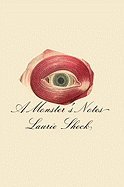What do you think?
Rate this book


Unknown Binding
First published January 1, 2009
I look out at the stone face across the way, the PARK sign, read MTA posters as I ride:
IF YOU SEE SOMETHING, SAY SOMETHING.
[rest of the MTA fearmongering ad text]
REMEMBER. YOU ARE THE EYES AND EARS OF THE SYSTEM.
Didn't your world fill with suspicion because it had me in it? From the moment I opened my eyes, you couldn't trust who you were, what you had made or done, what I was or might become. Yet mostly you said nothing, until maybe those last hours of your dying. In that way weren't we alike?